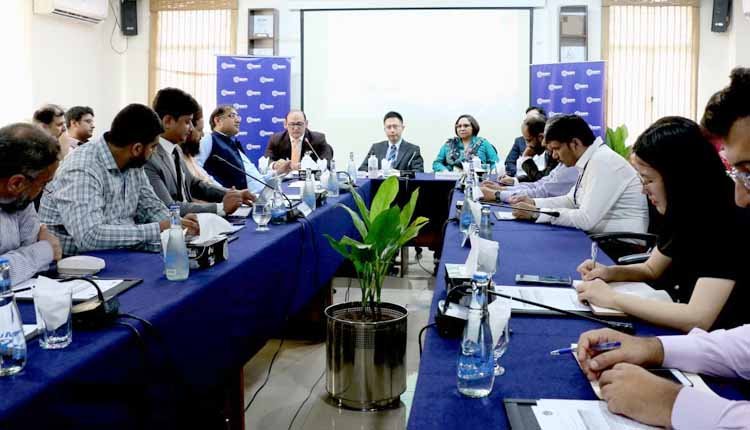Forging Strong Partnerships Between Pakistan and China to Accelerate Sustainable and Just Energy Transition
ISLAMABAD : Developing expert-led long-term strategic energy plan and monitoring mechanism is crucial to ensure just energy access and eradicate energy poverty said Former Ambassador of Pakistan to China Naghmana Hashmi. She was speaking at policy dialogue on “Transforming the Power Sector: Exploring the Prospects of China-Pakistan Just Energy Transition Partnership (JETPs)”, organized by Sustainable Development Policy Institute (SDPI) and Pakistan China Institute (PCI).
She expressed that by reforming economic and energy policy structure, energy access for industry and rural economies can be improved and export and economic growth can be catalyzed. She emphasized
Wang Shengjie, Head of Political and Press Section, Embassy of People’s Republic of China in Pakistan said that energy inflation during Russia-Ukraine conflict triggered a global shift in energy policies for “just” and “adjust” energy transition. He suggested that currently Pakistan needs moderate and flexible energy policies to ensure adjust energy transition, introduce supply-side reforms, and diversify the power generation for sustainable energy supply. He added that Biomass and Waste to Energy are overlooked areas with immense energy generation potential. He also added that Energy efficiency is essential to address the circular debt issue which is the biggest hurdle in foreign investment.
Dr Hassan Daud Butt, Senior Advisor and Research Fellow, SDPI highlighting the immense energy financing opportunity for BRI countries urged the government to leverage it to increase access to clean and affordable energy as well as for international financial institutions to introduce cheaper clean energy technologies in developing countries. He added that Pakistan must address the headwinds to create a true, sustainable easy-of-doing business environment to attract foreign investors in Pakistan.
Dr. Christopher Nedophil, Director Green Finance and Development Centre, Fudan University, said that Pakistan is among top 5 recipients of China’s energy financing which has expanded coal-powered generation from 0.15 GW in 2015 to 7.2 GW in 2023 under CPEC, reducing import dependency and foreign exchange reserve outflows. However despite economical cost of clean energy, renewable energy transition in Pakistan is impeded by policy inconsistency and local political economy.
Mustafa Hyder Sayed, Executive Director, PCI, stressed that political will, bold decision-making and concrete policy actions are crucial to catalyze clean energy transition. He further added that attracting foreign investments in energy and meeting climate and delivering on the 30% emission reduction commitments requires developing technical capacity of public bodies in energy sector to formulate policies for competitive tariff structures. He stressed that the gap in policies and follow-up actions must be bridged by launching pilot project on transition from fossil fuels to renewables and using the data to incentivize Chinese investors to relocate their industries amidst increasing global competition.
Moeen Abbas, Chief Executive Officer, Moony Holdings, highlighted that the biggest challenge in energy transition is misalignment of risks and rewards for power companies as generation reward was 73% while distribution reward was 10%. The low recovery on investment in energy sector and issues with payments of generation companies are tarnishing Pak-China relations, he added. Lack of holistic energy planning is resulting in a cycle of inefficient refineries causing inefficient power generation and stressed the transition from thermal energy generation to renewable energy must be upscaled steadily in foreseeable future to reduce high-cost shock.
Dr Khalid Waleed, Research Fellow, SDPI highlighted that Pakistan needs US$50 Billion by 2030 and US$80 Billion by 2040 for clean energy transition with an additional US$30 billion required for coal phaseout and suggested to add Pak-China Just Energy Transition Partnerships (JETPs) into Pak-China strategic partnership to bridge financing requirement. He suggested strengthening inter-ministerial collaboration along with academia and private sector and integrated and indicative energy expansion plan that is not solely focused on power sector but to entire energy landscape. He further stressed integrating climate change and sustainable energy in macro-economic policies and national accounting.


Comments are closed, but trackbacks and pingbacks are open.